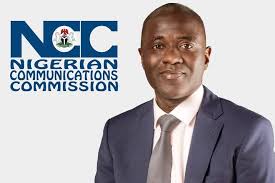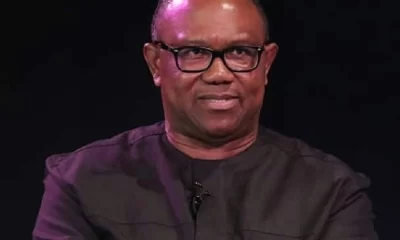Press Releases
Hardship; Telecom operators in Nigeria begin load shedding in some areas to cut costs

Some telecommunications operators in Nigeria have started implementing load shedding in some areas to cut their operating costs as the economic crunch bites harder.
We gathered from sources in the industry that this strategic move to lower opex is being implemented in a manner that prioritizes high-revenue areas, explaining why the service quality of network operators may be good in certain areas and poor in others.
Load shedding in this regard refers to a practice of reducing the number of operational base stations in some areas to cut costs.
This development is coming amidst an ongoing debate on the need to increase telecom tariffs, to cushion the effect of the Naira devaluation and high inflation, a call the government is not favourably disposed to.
In reaction to the continuous advocacy for tariff increase, the Minister of Communications, Innovation, and Digital Economy, Dr. Bosun Tijani, recently advised the operators to “explore innovative solutions to counter inflationary pressures and high operating costs.”
Cost-cutting measures
According to a source familiar with the development, who chose to be anonymous, in the absence of reliable power from the grid, the high cost of diesel powering base stations has been a huge burden on the operators long before now.
The situation, he said, has been worsened by the forex crisis, which pushed the cost of other equipment and the increased cost of fuel for maintenance transportation.
“Telecom base stations rely heavily on diesel for operation, and transporting maintenance personnel has become increasingly expensive. As a result, operators are struggling to cover these costs amid the ongoing economic turmoil.
“This is why some of them have resorted to load shedding of their network infrastructure. This practice involves reducing the number of operational masts to cut down on expenses.
“For instance, in areas with lower revenue but continuous demand, operators are extending the coverage radius from 1km to 2km between masts. This means that a network that previously utilized 100 masts over a 100km radius may now be maintained with only 50 masts, reducing operational costs by up to 50%,” the source stated.
- Another industry source confirmed the development adding that the whole strategy of cutting costs also includes cutting back on investments in more infrastructure.
- He noted that this specifically will affect the expansion of 5G, which is the newest technology launched by the operators.
- The load shedding, he said, is responsible for poor quality of service in some areas as the reduced number of masts struggles to handle the same volume of traffic.
Insecurity factor
Although a top official in one of the telecom companies denied the practice, saying they treated all customers equally, he said the only areas that are experiencing such treatment are parts of the country with high rates of insecurity.
“What you should know is that even in areas where people use mostly feature phones, we still generate revenue from there. So, we are trying to ensure that everyone has access to our services. However, exceptions are areas where our base stations have been damaged due to insecurity.
“We cannot send our staff to those places to go and repair because of their safety and security. So, people in those areas may experience poor quality of service because some sites have shut down. We cannot afford to risk the lives of our people to get some people connected,” said the official who spoke under the condition of anonymity.
Initial warning
Earlier, the Chairman of the Association of Licensed Telecommunications Operators of Nigeria (ALTON), Engr. Gbenga Adebayo had warned that with the rate at which challenges have persisted in the telecom sector without a solution in sight, the operators may be forced to start rationing network availability to cut costs if the telco is not allowed to implement a tariff increase.
- ALTON has been at the forefront of the advocacy for tariff increase, insisting that the operators may not be able to continue investing in capacity with the current tariff regime. According to the body, the telecom industry is the only industry that has not reviewed its prices despite the rising inflation in the country and other economic realities that warrant increment.
- Backing the operators’ call, an economic expert and Chief Executive Officer of Financial Derivatives Company Limited, Mr. Bismarck Rewane, also recently explained why the operators should be allowed to increase tariffs.
- According to him, the last time there was a telecom price review was in 2013, and the prices of every other service in Nigeria have gone up multiple-fold since then.
- Rewane said the current tariff regime is inhibiting the operators’ capacity to invest more in infrastructure, hence, the quality of their services has been deteriorating in recent times.
- He added that poor telecom services would affect the telecom subscribers and the economy at large.
New QoS regulations for telcos
Meanwhile, amid the current strain on existing infrastructure, the Nigerian Communications Commission (NCC) has released new quality of service regulations setting out new key performance indicators (KPIs) and penalties for the service providers.
Some of the KPIs through which the performances of the operators will be measured by the regulator Call Setup Success Rate (CSSR), Drop Call Rate (DCR), and Traffic Channel Congestion (TCH CONG).
Highlighting penalties for failing to meet up with the KPIs, NCC in the new regulations stated that failure to meet the Call Setup Success Rate target of 98% or more, for instance, will attract a N5 million fine per reporting area and a further sum of N500,000 per day for as long as the contravention persists.
These new regulations are obviously connected with the recent announcement by the Commission that it was working towards achieving a 50% improvement in the quality of services (QoS) in the telecommunications industry by the end of this year.
It is, however, unclear how this will be achieved with the current scenario playing out in the industry.
Nairametrics.


 Entertainment21 hours ago
Entertainment21 hours agoRaining direct c#rses online is a criminal offense — Police PRO

 News21 hours ago
News21 hours agoNCC’s Maida To Stakeholders: A2P Messaging, A Powerful Tool For Communication With Citizens

 Top Stories19 hours ago
Top Stories19 hours agoPrimate Ayodele releases 2025 prophecies on Tinubu, Atiku, Nnamdi Kanu, Wike, others

 Sports16 hours ago
Sports16 hours agoEPL: Man City will turn it around – Guardiola vows

 Top Stories20 hours ago
Top Stories20 hours agoDele Farotimi Granted ₦30 Million Bail, Barred From Media Interviews

 Top Stories3 hours ago
Top Stories3 hours agoGoods worth millions destroyed as fire guts Ibadan spare parts market [VIDEO]

 Top Stories3 hours ago
Top Stories3 hours agoPeter Obi Offers To Meet Dele Farotimi’s Bail Conditions

 Sports2 hours ago
Sports2 hours agoNistelrooy Gives Update On Wilfred Ndidi’s Injury Ahead Of Leicester Vs Wolves Clash







